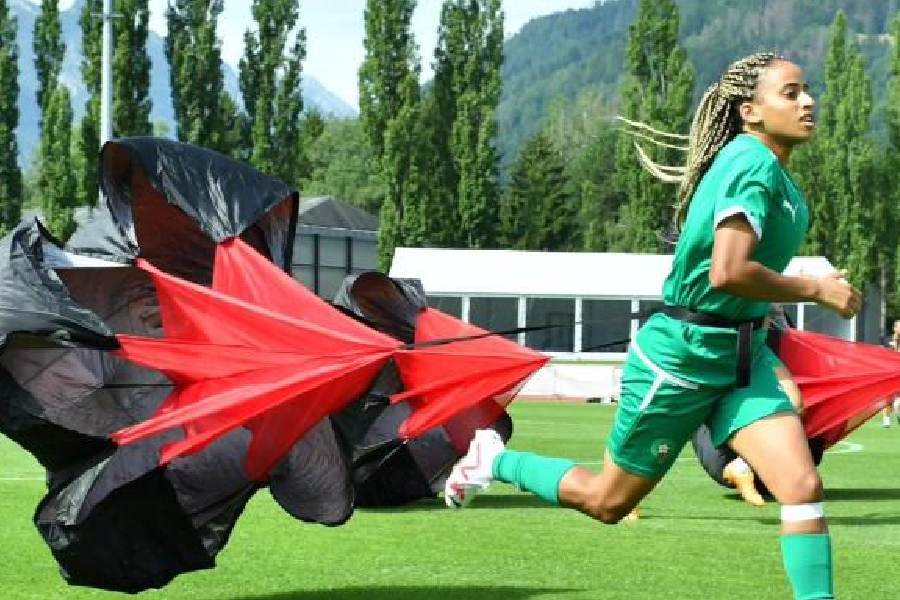The game was sparsely attended; it was midweek and the match wasn’t going to be a nail-biter: the Association Sportive des Forces Armees Royales, a powerhouse in women’s football here, ended up crushing their Moroccan national women’s professional league opponents 7-0.
One young fan in the stands was excited regardless. Dressed in a jersey reading “Morocco” in Arabic, five-year-old Aliae Benazzouza descended to the pitch to meet the players.
A favourite of hers, Fatima Tagnaout, who plays for Morocco’s national women’s team and for the armed forces team known as ASFAR, wrapped her arms around Aliae as they posed for photos. Aliae waved at another player. During the game, she would make her way to the front of the stands for a better view. “I was very happy,” Aliae said.
After years largely in the margins, Moroccan women’s football is gaining ground, capturing the imagination of some girls like Aliae, winning the hearts and minds of more parents, and chipping away at a traditional view of football as a men’s game.
Morocco’s national team, dubbed the Atlas Lionesses, will make their debut this month at the Fifa Women’s World Cup, the first to qualify from the Arab world, where many are wild for the men’s game. Australia and New Zealand are the joint hosts.
“I teach (my daughters) confidence, not fear,” said Idriss Benazzouza, Aliae’s father. “Sports don’t differentiate between genders.”
He said the Lionesses’ achievement “shows how women’s football has progressed” in the north African country and has filled him with joy. He added, though, that not everyone he knows shares his enthusiasm due to conservative views or religious beliefs against women wearing shorts.
The national team’s upcoming Women’s World Cup appearance follows their male counterpart’s history-making feat as the first African or Arab team to reach the World Cup semi-finals. Last year’s run galvanised support from other Arab countries.
Morocco’s 2022 hosting of the Women’s Africa Cup of Nations drew large numbers of spectators and catapulted the country to the upcoming global tournament. It marked a watershed moment in perceptions for many, football officials and players say.
“The qualification of the women’s team for the finals at the Africa Cup of Nations, the media momentum and the wide audience that followed… breathed new life into women’s football in Morocco,” said Khadija Illa, president of the national women’s football league.
- Fifa Women’s World Cup begins on July 20











